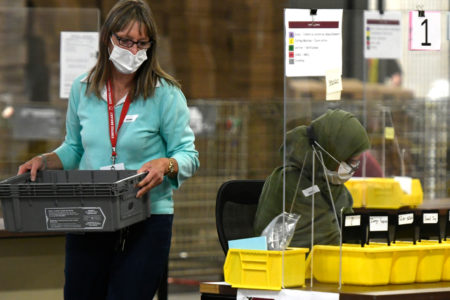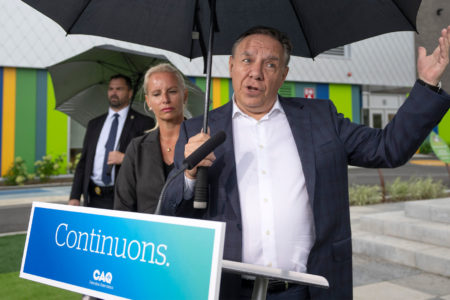
June 21, day one of the House of Commons Special Committee on Electoral Reform (ERRE), opened and closed with unanimity. That may be the first and last time it happens. On display, though, was not the substance of actual reform, but rather the style in which it will occur. At its heart was a debate between the role of Parliament and the role of citizens in shaping and ultimately determining a new electoral system for Canada.
Protagonists of the first act were Jason Kenney, Conservative MP from Alberta, and Nathan Cullen, NDP MP from British Columbia. Cullen sought to carve out a slice of committee time for public questions via social media. Kenney demurred, citing the role of MPs as elected representatives of the public to take on this task.
Unable to reconcile the differing views, the committee decided – unanimously – to punt the issue over to its own steering committee. Unanimity preserved, consensus achieved, decision postponed.
Kenny and Cullen are both right. And therein lies the legitimacy dilemma facing this committee at its inception.
That dilemma is not, actually, a pure face-off between parliamentary supremacists and citizen-based democrats. Kenney, for his part, favours a referendum as the last act in this parliamentary play. Cullen does not. That legitimacy fight is still to come.
Rather, the current legitimacy argument flows from the short time — barely six months — given to the ERRE Committee to study, consult, and recommend not just a new electoral system, but also mandatory voting and online voting. This may be fine for MPs, but what of Canadians? And what of MPs who want and, frankly, need to hear from Canadians about their electoral system?
The committee’s mandate calls for “town halls to be conducted by each MP in his or her constituency as well as a national engagement process that includes a comprehensive and inclusive consultation with Canadians.” Helpful examples given for such a process are “written submissions and online engagement tools.” Never mind that the first time online engagement came up, the committee could not figure out what to do. As for written submissions, there is nothing new here.
This does not bode well for the committee. It needs to expand its process to fit its own expansive mandate.
It has two choices: either commit to a referendum at the far end to make up for inadequate citizen engagement at the front end, or fill in what is clearly a consultation gap, with more meaningful conversations and engagement with Canadians than it currently envisages.
They need a citizens’ process to engage Canadians more directly and legitimize their work as they do so.
Here are five ways they can do so:
First, hold five regional electoral reform town halls, where the committee hears from a cross-section of Canadian interests, experts, and citizens. Look to the successful constitutional conferences of 1991-92 as the model. A think tank or university consortium would independently organize each conference, which would give it balance and allow for a range of views. It could involve the committee members in a listening and questioning mode. Inform these town halls with a draft committee report containing specific reform options, in order to give focus and legitimacy to the conferences and the committee work.
Second, undertake expert issue round tables that are open to the public, where recognized academic and political experts debate with committee members the issues and benefits of the various electoral systems in a free-flowing dialogue. If there was ever a time for academic experts to help illuminate questions and issues, this is it. Potential topics for the round tables include types of electoral systems, democratic values and trade-offs, the roles of parties and citizens, electoral boundaries, and implementation. Instead of just having experts testify in response to set questions, have the committee members and experts actively debate and learn from each other.
Third, commission original, independent research on each of these issues to feed into each round table. This should all be public. Let the committee challenge and be challenged by this research and these experts, while building an informed body of work to assist whatever recommendations they make.
Fourth, create an electoral reform educational portal, where the committee provides educational fact sheets and analysis to the public on electoral systems and ideas and issues for reform as it goes along. Pair these with the MP town halls. Hold webinars for the public to learn as the process unfolds. The education process has to support the consultation process in order to build legitimacy and for there to be meaningful input. Yet, this seems to be lacking in the committee’s mandate and process.
Fifth, encourage the CBC, CPAC or a broadcaster consortium to host a representative citizens’ assembly of Canadians on electoral reform. It would illuminate the choices, trade-offs and outcomes of three electoral systems: proportional representation, alternative voting, and our current first-past-the-post system.
This is not as complicated as it sounds. British Columbia and Ontario held such a process, and it worked. It has also worked in various provincial consultation exercises on health care and other issues. In this case, as few as several dozen representative Canadians selected independently by a polling firm for gender, age, region, education, and income would come together and be followed by the networks on their journey, as they consider what is at stake and come to a consensus. Giving them unbiased information and exposing them to the points of view of parties, experts and each other would truly illuminate the issues at stake and educate others as they go along. In this way, citizens would be not afterthoughts, but central to the conversation.
This is what a true electoral reform national consultation process would look like. It falls squarely within the committee’s mandate. It builds greater legitimacy for the process and, more importantly, for its ultimate recommendations. It keeps Parliament as the arbiter of the process, underlining its representative democracy role but, given the topic, ensures substantive input from citizens.
During its first meeting, the ERRE Committee announced it had $300,000 to hold nationwide consultations and to complete its work. That same week, the National Energy Board announced $10 million for citizen consultation on the Energy East pipeline.
Such a contrast in priorities and effort is disturbing. The government and House of Commons need to reassess their thinking on electoral reform and engaging Canadians. A more citizen-focused electoral-reform consultation is required.
To do anything less will cheat Canadians out of their rightful voice. After all, it’s our electoral system not Parliament’s.
Photo: Sean Kilpatrick / The Canadian Press
This article is part of the Electoral Reform special feature.
Do you have something to say about the article you just read? Be part of the Policy Options discussion, and send in your own submission. Here is a link on how to do it. | Souhaitez-vous réagir à cet article ? Joignez-vous aux débats d’Options politiques et soumettez-nous votre texte en suivant ces directives.







